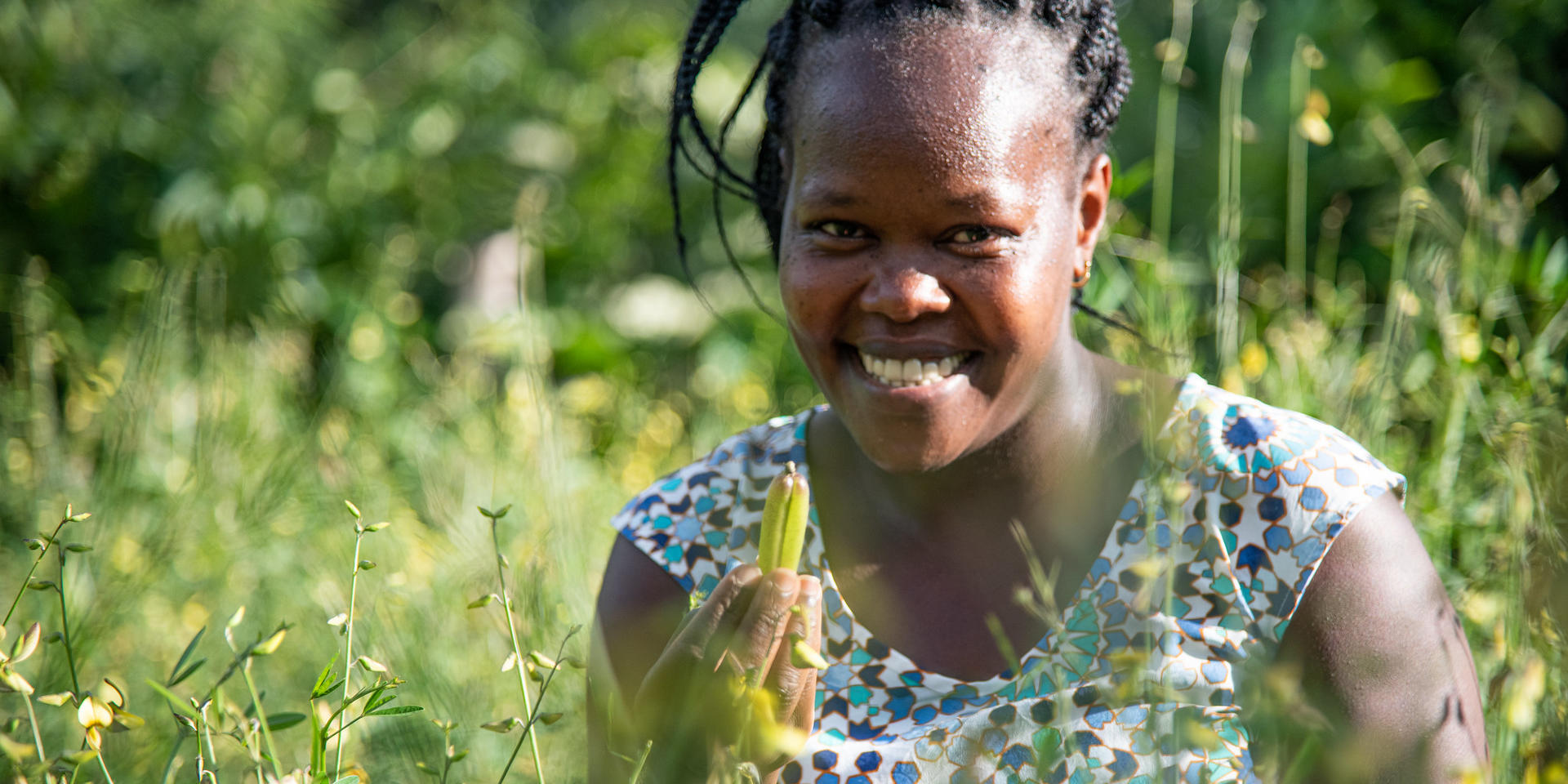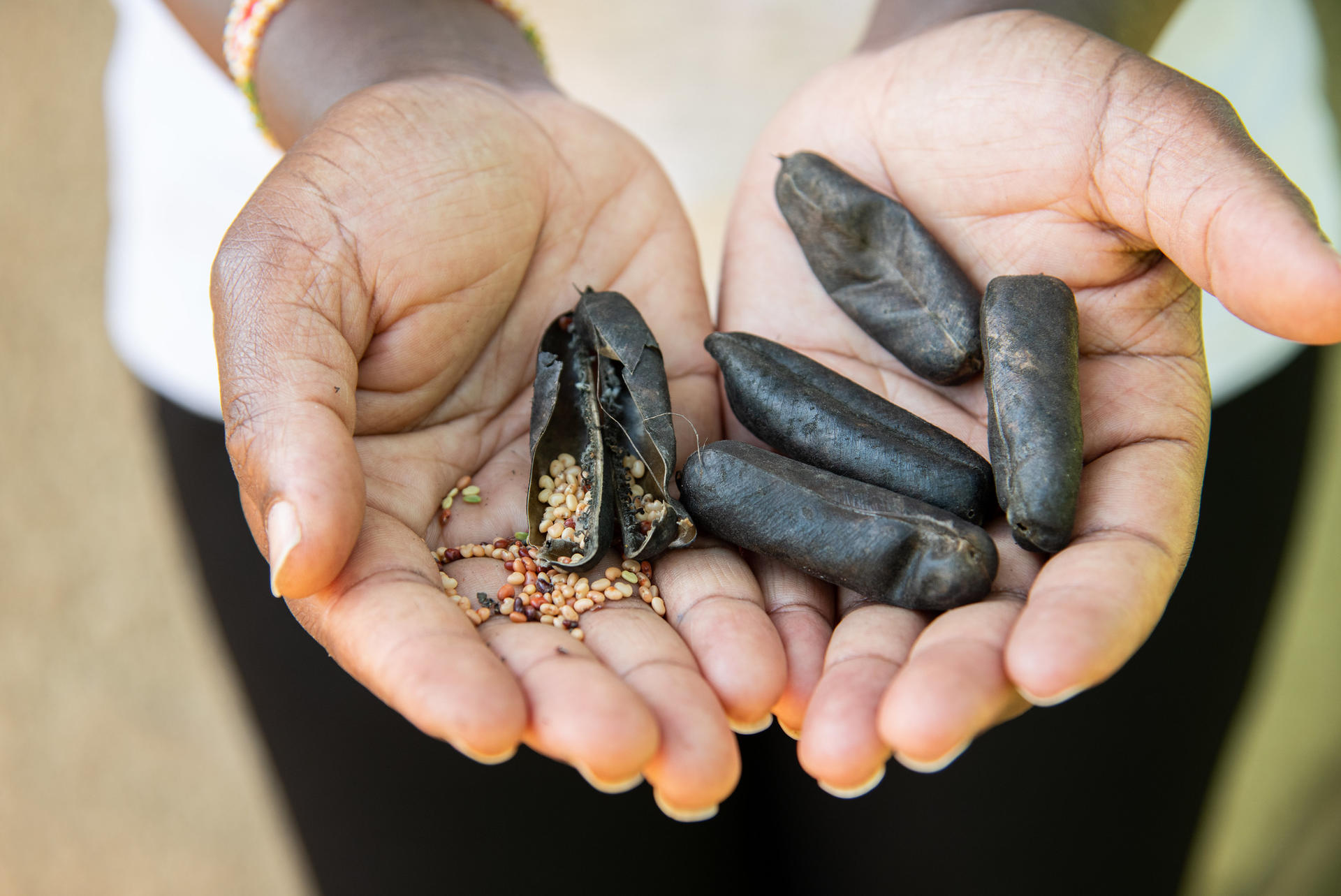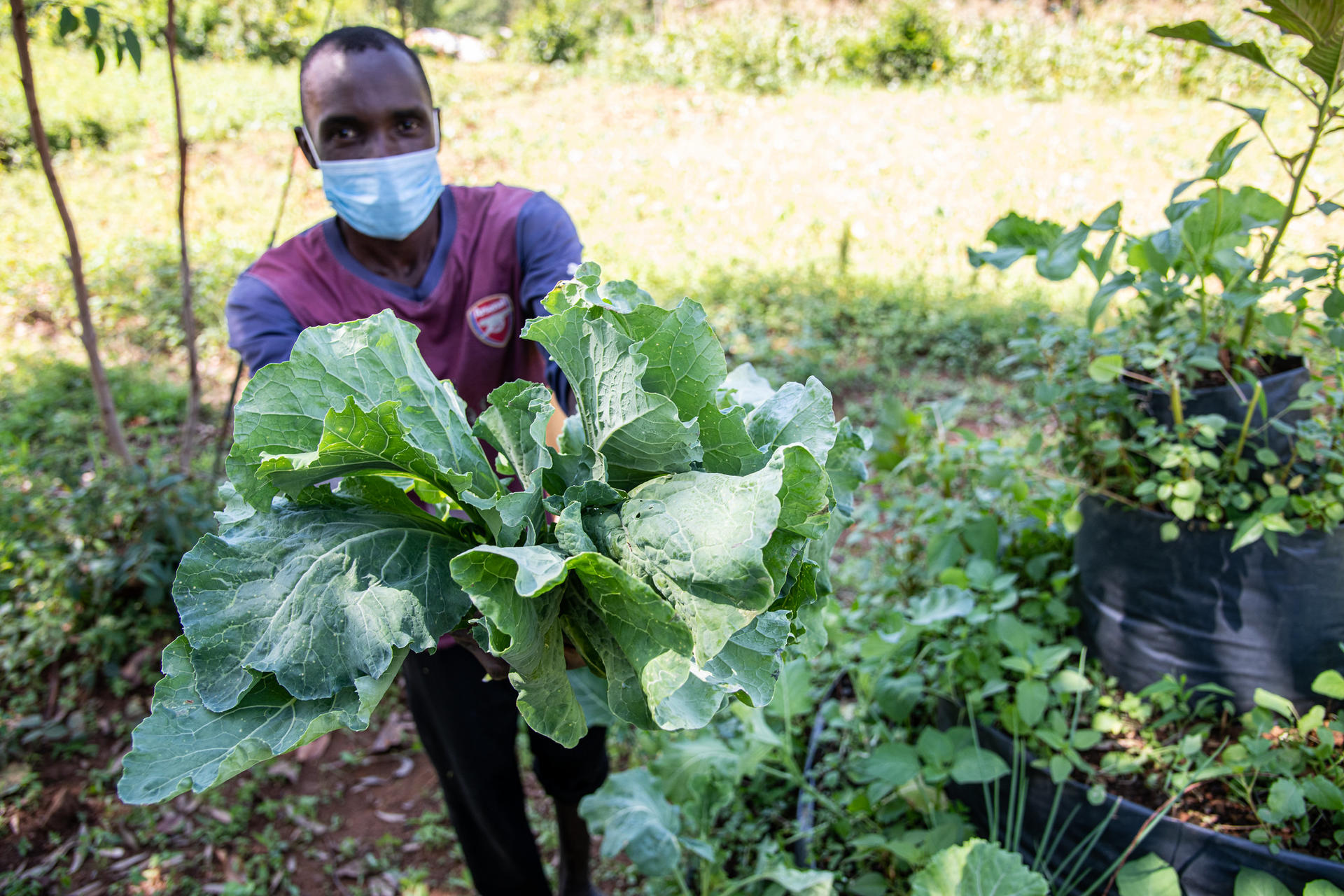Blog The Alliance Community supports the Nyando Community Seed Bank

Lillian Aluso at the genebank in Vihiga, Kenya
©2019 Alliance of Bioversity International and CIAT/ Georgina Smith
The Alliance community comes together to support agrobiodiversity conservation at the Nyando Community Seed Bank in Kenya through the Alliance Solidarity Fund.
When the pandemic hit the world in 2020, people and organizations from all over the world found themselves in unknown territory. The effects of the pandemic meant an end to business-as-usual and the emergence of a new and unfamiliar normal. At the Alliance, we were not exempt from these far-reaching changes and their implications across our operations. But, we committed to go back to the drawing board, and came up with a powerful business stability and continuity plan, which included helping those in need within and beyond our own community.
Through the generosity of our employees, many who donated a portion of their salaries over a six-month period, we created the Alliance Solidarity Fund to support staff whose positions could be impacted by financial exposure to the pandemic. However, with careful financial planning and management, the Alliance remained financially robust, despite the impact of the COVID-19 pandemic, and there was no need to use the resources of the Alliance Solidarity Fund to cover salary gaps. Instead, this year, many of those who contributed to the fund, collectively decided to allocate these resources to the Nyando Community Seed Bank located in Western Kenya, in Jimo Village. This seed bank conserves valuable local agrobiodiversity and helps farmers to adapt to climate change and meet their food and nutrition security needs, while serving as a knowledge-sharing hub for farmers and researchers.
Findings from Africa
Researchers and scientists recognize the crucial role that seed banks play in safeguarding agrobiodiversity. Research by the Alliance, in collaboration with several implementing and policy actors, has found that farmers in Africa face unprecedented challenges caused by climate change and related crop-management problems.
In the greater African region, research has found that due to different environmental stresses, the food and nutrition security of poor farmers is under threat, and this creates problems for agricultural production. This, however, is not the only challenge that farmers face globally. Climate change has been found to increase pests and diseases, cause low agricultural productivity, food insecurity and a general loss of genetic diversity.
In Kenya, Uganda and Tanzania, research findings indicate that only a few food crops benefit from substantial investment from private and public investors. Further that, for greater availability of diverse food crops, more nutritious crops and income generation, farmers would benefit greatly from resilient seed systems.

Diverse seeds at the farmer-run seed bank in Vihiga, Kenya
Nyando Community Seed Bank
Since 2016, the Alliance has been promoting an Open-Source Seed System for beans, sorghum and finger millet for climate change adaptation, funded by the Food and Agriculture Organization of the United Nations (FAO). The Nyando Community Seed Bank, serves and collects seeds from farmers in neighboring villages. Through the seed bank, farmers can access a range of local seeds such as traditional leafy vegetables, pumpkins, cassava, passion fruit, and pawpaw, and seeds from crops at risk of extinction. The Bank has grown in strides since its creation and held workshops in Kisumu where stakeholders from Kenya, Uganda, Tanzania and Ethiopia recommended solutions including the establishment and support of community seed enterprises and policy support for farmers. This successful workshop was preceded by two seed fairs where farmers showcased a range of indigenous high-value seeds.

Ogaye Format shows the diverse vegetables and new cultivation methods he is using at his farm with support from the Alliance and Partners
Support form the Alliance Solidarity Fund
The Nyando Community Seed Bank has demonstrated greatly the value of seed banks in communities where the main stakeholders are farmers. By supporting such local facilities, the Alliance contributes to agrobiodiversity conservation and facilitates crucial knowledge sharing between farmers, researchers and scientists locally, regionally and internationally. Suzanne Ngo-Eyok, Managing Director of the Alliance Africa hub, who attended the most recent workshop at the Nyando Seed Bank said, “Seed is life, and millions of livelihoods are supported by agriculture and that is why there needs to be concerted efforts to ensure seed sovereignty.”
The donation provided by the Alliance Solidarity Fund will serve many needs at the Nyando Community Seed Bank towards facilitating agrobiodiversity conservation efforts. It will boost their ability to fulfil financial needs where improvements on the facility are required, as well increase the reach and impact of their work on conservation of genetic resources. The funds will go a long way towards the growth of the seed bank, and create awareness at the local, regional and international levels, about the crucial importance of community seed banks and the wealth of information held by farmers at the grassroots level.
